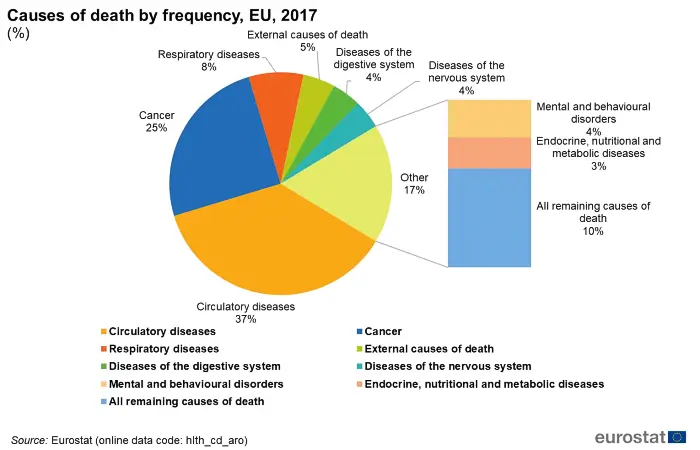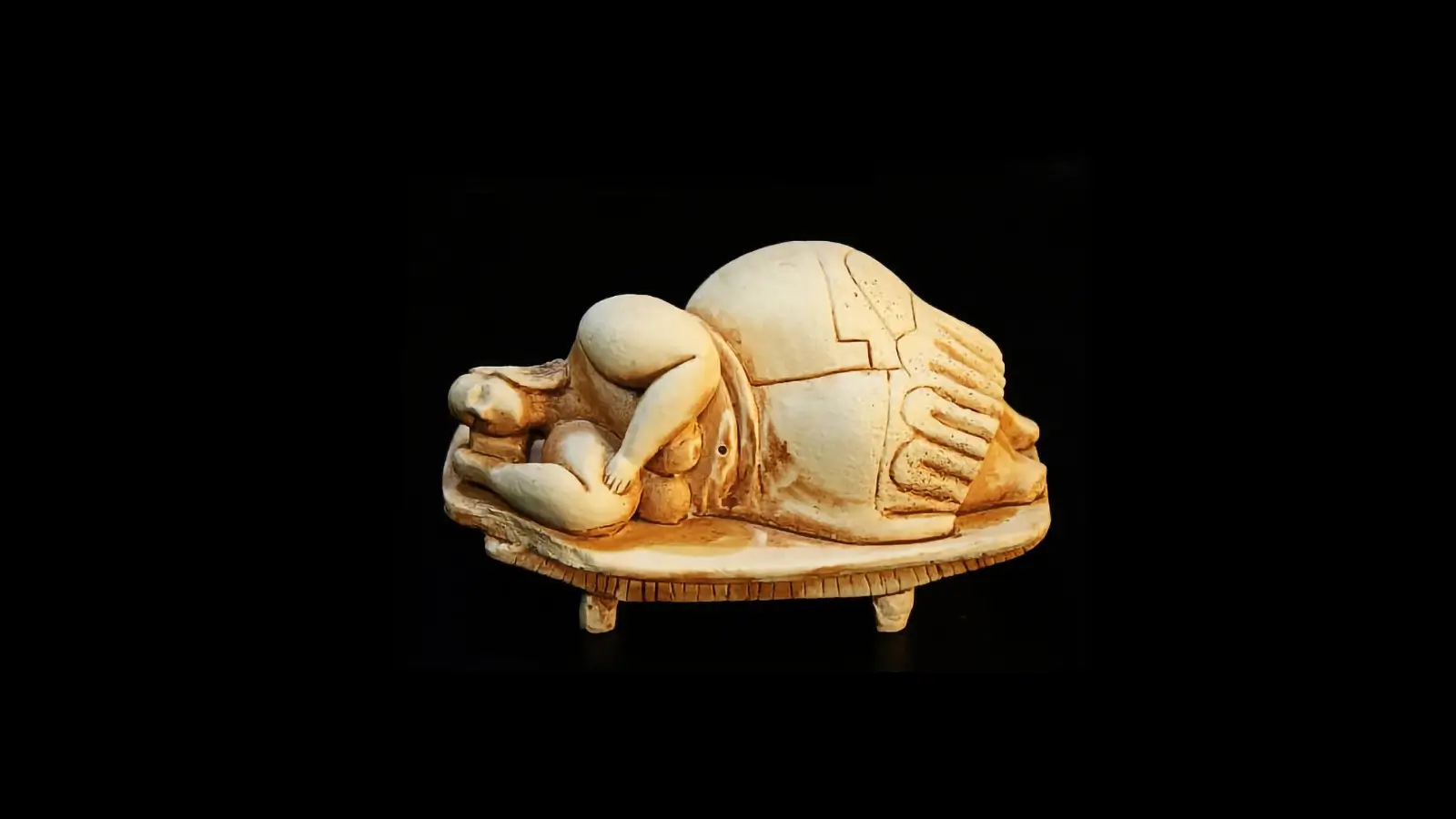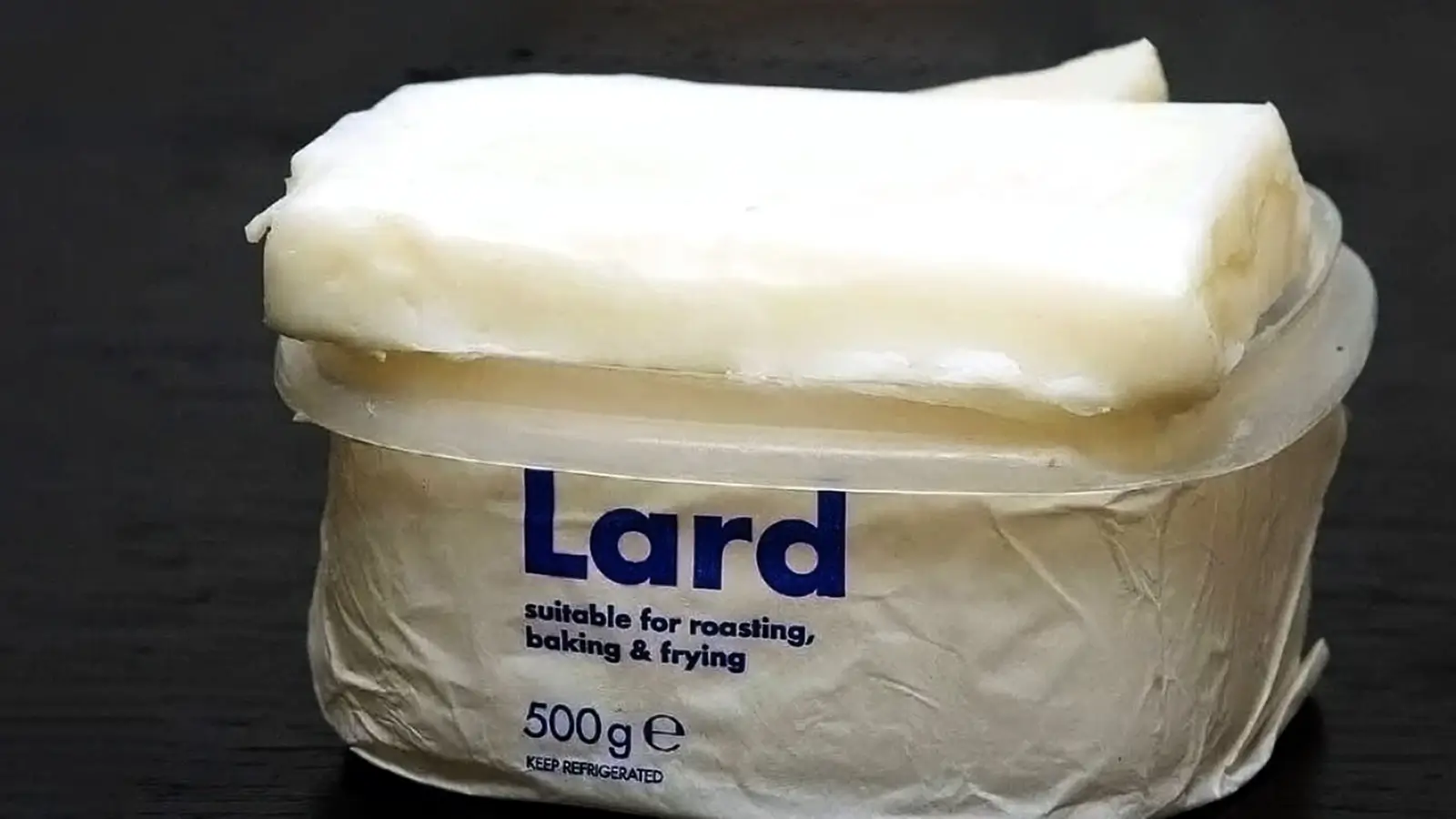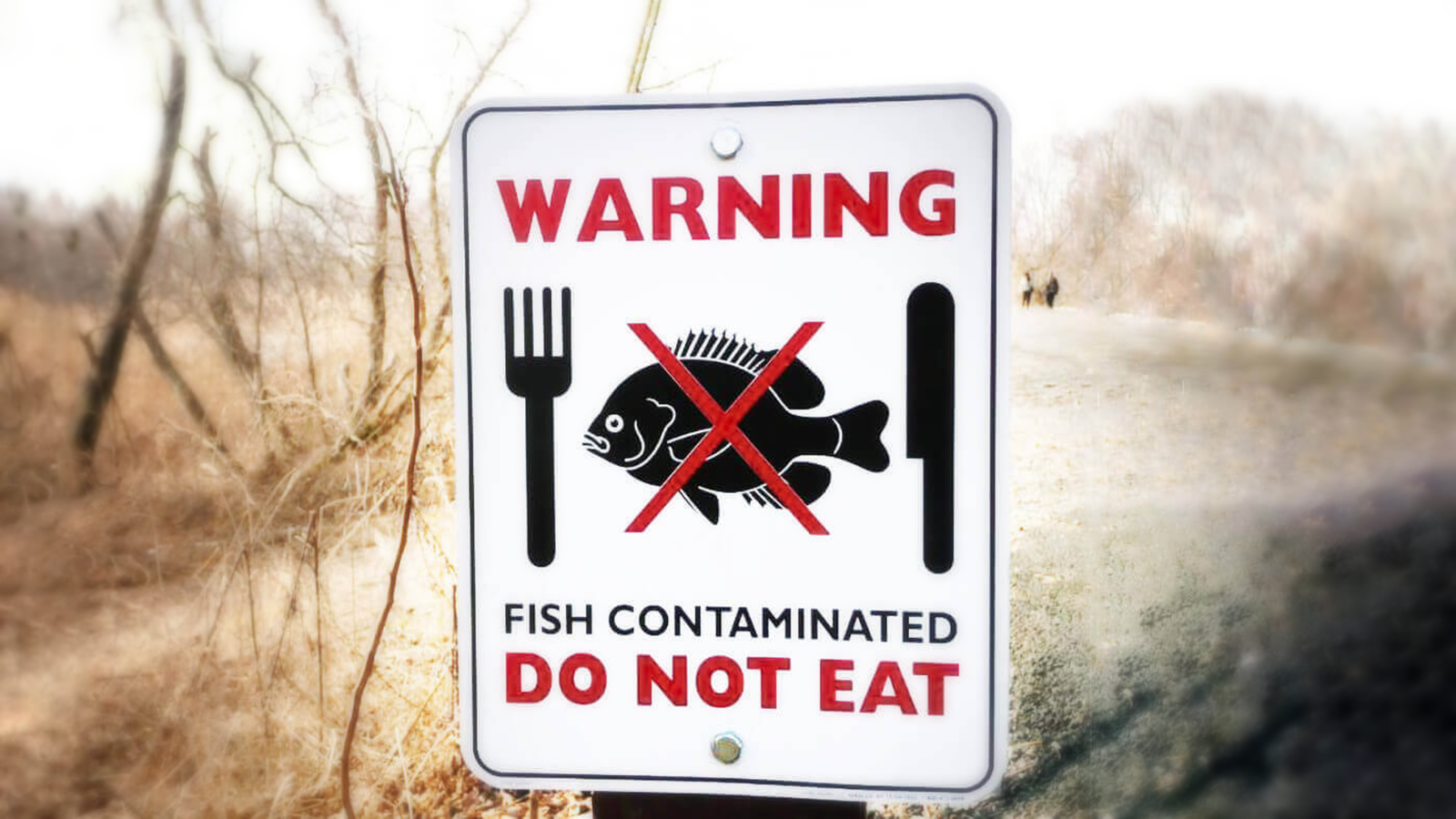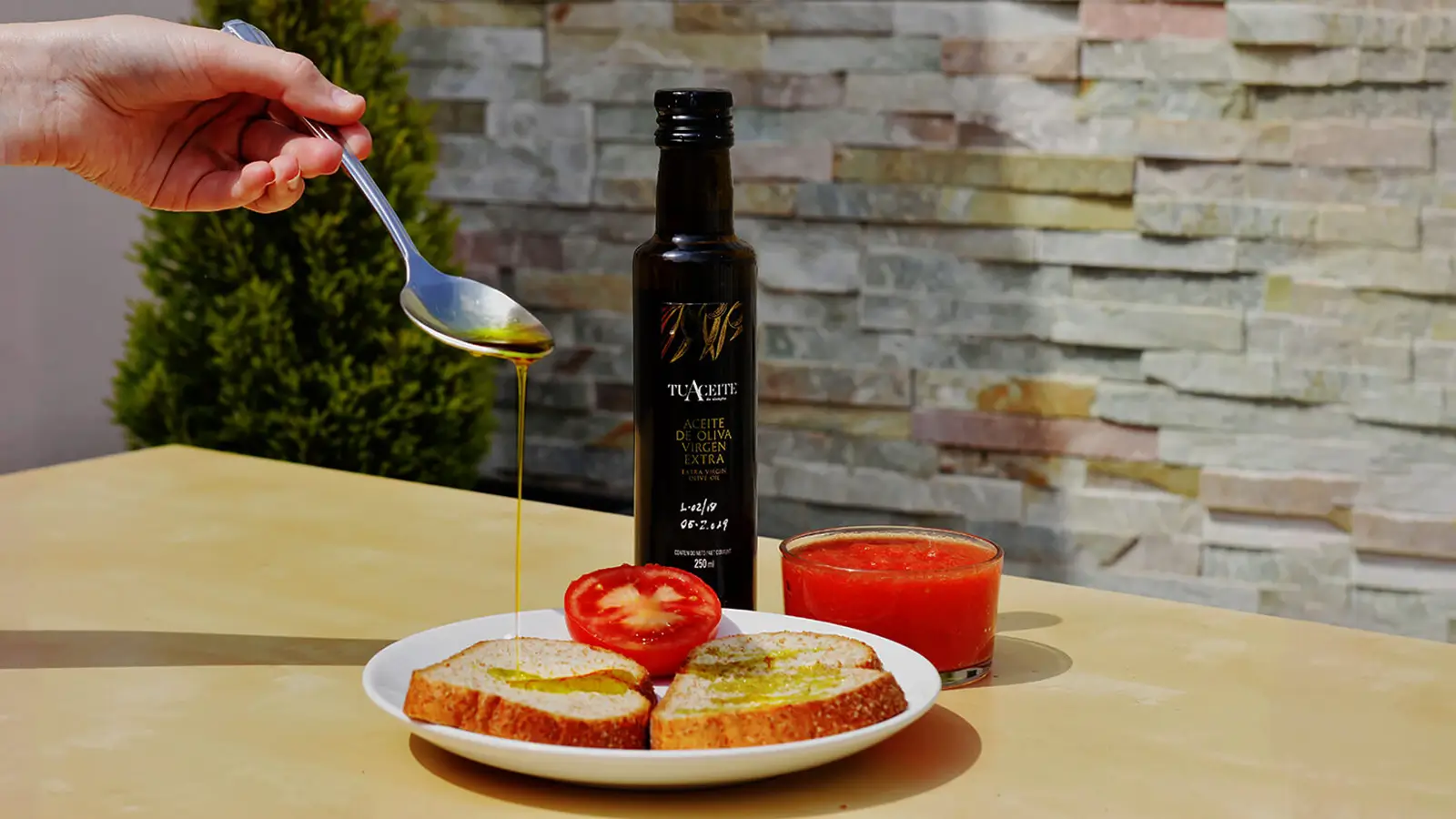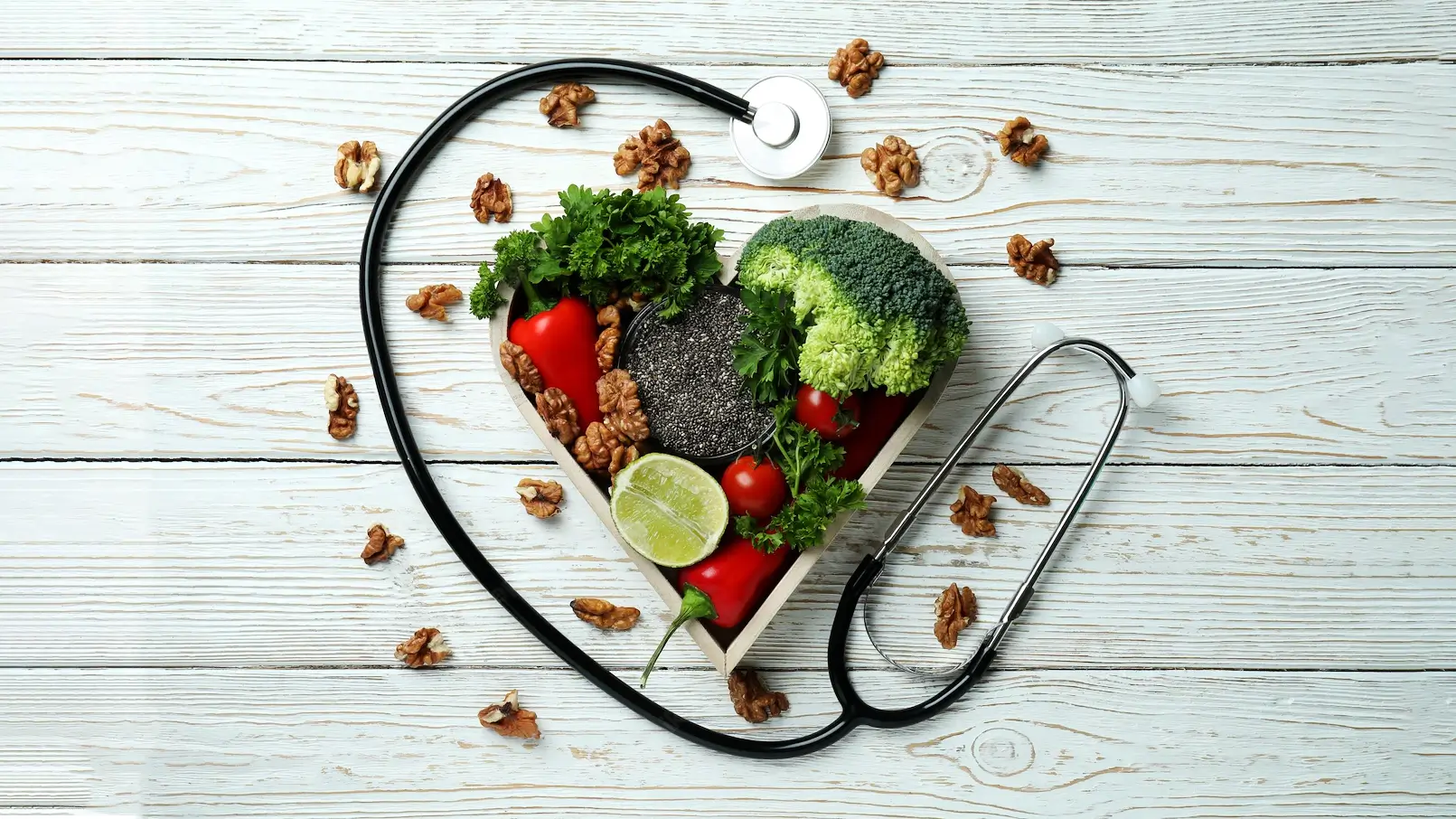Enfermedades crónicas - la raíz de La causa
Si hacemos caso omiso de las verdaderas causas genéticas que no causan más del 5% de las muertes, la verdadera razón de las enfermedades crónicas es una dieta evolutivamente incongruente.
Milos Pokimica
Escrito por: Milos Pokimica
Revisado Médicamente Por: Dr. Xiùying Wáng, M.D.
Actualizado el 9 de junio de 2023Las enfermedades crónicas son afecciones que duran un año o más y no pueden curarse fácilmente. Para la mayoría de las enfermedades crónicas sólo existen tratamientos que pueden aliviar los síntomas, y la mayoría de ellas requieren atención médica continua y limitan las actividades. También son las principales causantes de un billón de dólares en costes sanitarios anuales. Las enfermedades crónicas son las principales causas de muerte y discapacidad en el mundo y provocan la muerte de más personas en un año que la mayoría de las guerras de toda la historia de la humanidad juntas.
Las enfermedades crónicas son un amplio abanico de afecciones diferentes, como las cardiopatías, el cáncer y la diabetes, y a primera vista no tienen nada en común. ¿Cómo es posible que afecciones tan diversas tengan una causa común?
Se trata de predisposición genética, ¿verdad? Es una creencia común. Si vamos a tener alguna enfermedad es porque es así. No hay nada que podamos hacer al respecto.
La respuesta es no. Si prescindimos de las verdaderas causas genéticas que no causan más del 5% de las muertes, la verdadera razón es dieta evolutivamente incongruente y el estilo de vida. En la mayoría de los casos, la enfermedad es una elección. Por ejemplo, algún nivel de cáncer también estará presente en los animales, pero el 23,4% de todas las muertes sólo por cáncer no se deben a causas genéticas. Este es un secreto a voces número uno del que a la gente no le gusta hablar. La industria médica también evitará abiertamente este tema. La industria médica (medicina alopática) se basa en tratamientos intervencionistas y medicamentos patentados.
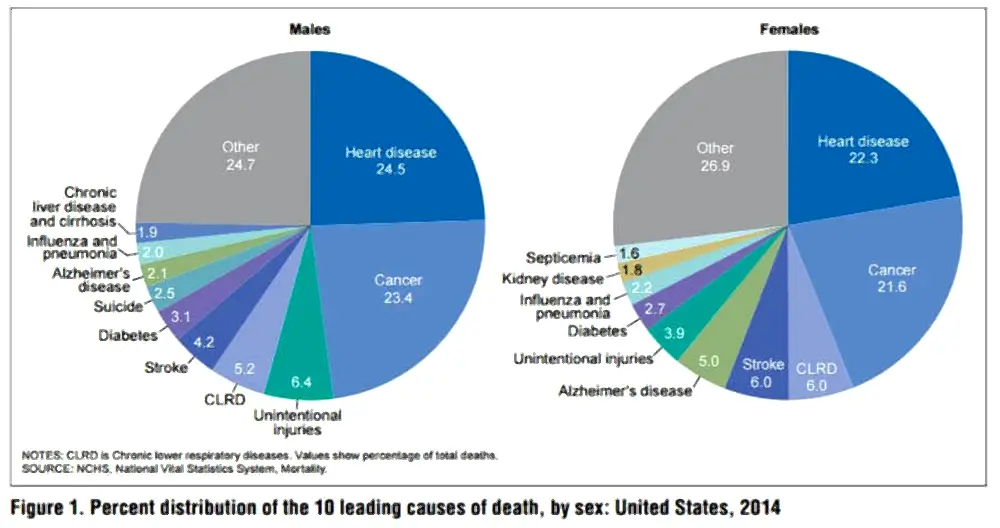
La evolución de la dieta de los homínidos es un tema importante para comprender nuestra fisiología. Nuestro cuerpo es fruto de más de 50 millones de años de evolución. Los genes se transmiten de una especie a otra. Esa es la razón por la que algunas especies como los chimpancés tienen en un 99% la misma estructura genética que el Homo sapiens.
Tenemos que entender cómo llegamos a existir y después de eso qué dieta y estilo de vida debemos tener que va a estar en consonancia con nuestra fisiología.
La predisposición genética es sólo la mitad del cuadro. La verdadera razón es un cambio brusco en nuestra dieta que ha provocado una mala adaptación y, como resultado, la predisposición genética individual será fuente de una u otra enfermedad crónica. Pero la causa fundamental es la inadaptación. Alguien tendrá diabetes, otro morirá de cáncer y un tercero sufrirá un ataque al corazón, dependiendo de la resistencia individual, pero todos moriremos de alguna de ellas porque todos comemos productos animales que no estamos adaptados a comer en grandes cantidades. Podríamos soportar algo de carne a veces, pero no en las cantidades excesivas que nos gustaría.
Quizá dentro de 10 millones de años ya no tengamos que preocuparnos por la dieta porque nuestros cuerpos se adaptarán, pero hasta entonces las enfermedades crónicas sólo pueden prevenirse con dieta y con un estilo de vida acorde con el de nuestros antepasados homínidos. Es decir, actividad física, ayuno periódico con mantenimiento del peso normal, evitar la contaminación y una dieta integral basada en plantas. Eso es lo que significa tener una vida "sana". Es sólo un estilo de vida al que estamos adaptados por la evolución. Todo puede ser "sano", pero no todo puede ser sano para nosotros.
Por ejemplo, el exceso de colesterol provoca aterosclerosis (depósitos de grasa que pueden obstruir las arterias) y, a continuación, enfermedades cardíacas. Es la primera causa de muerte en el mundo. No necesitamos colesterol alimentario (productos animales) porque nuestro hígado lo produce. Para nosotros como para cualquier otra planta tampoco es un nutriente esencial. Nuestro hígado crea tanto como necesitamos así que cualquier colesterol dietético en cualquier momento de nuestra vida entera, un mg de él es exceso que necesita ser desintoxicado. También, no nuestro cuerpo no tiene que tener colesterol para hacer cada célula en nuestro cuerpo, nuestro hígado hace todo el colesterol que necesitamos nuestra vida entera cada segundo de él. ¿Por qué? Porque no somos carnívoros. Los hígados de los carnívoros no producen colesterol, para ellos el colesterol es un nutriente esencial. No lo necesitan porque los carnívoros comen colesterol en cada bocado de carne, así que están adaptados a comerlo por evolución, y nosotros no. Por mucho colesterol que le dé a su gato, nunca desarrollará una enfermedad cardiaca. Los gatos están adaptados a comerlo en la cantidad que quieran. Nosotros no.
Por lo tanto, comer productos animales se asocia con una esperanza de vida más corta, ya que nuestro asesino número 1 son las enfermedades cardíacas y el número 3 los derrames cerebrales (básicamente la misma enfermedad que una enfermedad cardíaca, sólo que con un resultado diferente). Si nuestro asesino número 1 es algo completamente no relacionado, por ejemplo, la peste bubónica como en la Edad Media, entonces no tendríamos que preocuparnos por el colesterol en absoluto, tendremos que preocuparnos por el saneamiento. En este momento de nuestra evolución la situación es como es. El cáncer también es una enfermedad significativamente relacionada con el estilo de vida. La genética juega un papel, pero el estilo de vida es tan importante como la genética debido a la sobrecarga tóxica y los mutágenos de los alimentos y la intoxicación externa y también la falta inherente de un nivel adecuado de auto-reparación del mecanismo de autofagia (ayuno). El factor de riesgo más importante en el cáncer es la inflamación crónica y el deterioro del sistema inmunitario. La mayor parte de la población actual tiene altos niveles de inflamación crónica. Además, existe a gran escala en la población la falta de algunos micronutrientes esenciales (micronutrientes esenciales y algunos importantes no esenciales, no calorías) y antioxidantes. Por un lado, tenemos compuestos inflamatorios, toxinas y mutágenos que provienen de productos animales, pero por otro lado carecemos de micronutrientes y antioxidantes que provienen de fuentes vegetales. Además, existe una elevación crónica de hormonas promotoras del cáncer como el IGF-1 y el estrógeno. La proteína completa presente en los productos animales estimula el IGF-1, especialmente en una dieta rica en proteínas, y el estrógeno suele proceder de los lácteos. Esto es sólo un ejemplo, la lista real de asociaciones es una historia interminable pero todo se reduce a una dieta antinatural.
Sólo estas tres enfermedades, la apoplejía, las cardiopatías y el cáncer causan más del 50% de las muertes, y las tres dependen en gran medida de la dieta. Si miramos la lista de las 15 principales causas de muerte, más del 80% están influidas por el estilo de vida.
Everyone in the medical field knows this, all doctors, all scientists, and all industries. Well maybe not all of the doctors, some are just bad. The only ones that have a big problem with this are us, regular people because we like the way we live and we would not like to change anything in the way we eat. We will go to MDs if we have any problems right. Doctors are just there to do their job of prescribing pills. They are not there to care for you. Only you can take care of yourself. The problem is you don’t want to. You want the pill.
Nos gustan nuestras drogas inductoras de dopamina (estímulos supernormales) en forma de comida y cualquier otra variación. Lo más cómodo sería encontrar alguna investigación que esté en consonancia con lo que nos gusta y luego utilizarla como excusa. Luego podemos ir al médico para que nos dé unas píldoras mágicas.
Si no comprendemos la lógica subyacente de nuestros patrones de comportamiento, nada podrá ayudarnos, ningún consejo práctico será suficiente.
La ciencia no puede regir todos nuestros actos. Debemos regirnos lógicamente a nosotros mismos y a nuestros comportamientos en una línea de comprensión de nuestra historia y de cómo llegamos a existir.
En realidad, tenemos que echar un vistazo a la vida de nuestros antepasados durante un largo periodo de tiempo, más allá del periodo paleo, para poder reconstruir nuestra dieta natural.
Referencias:
Pasajes seleccionados de un libro: Pokimica, Milos. Go Vegan? Examen de Ciencias de la Parte 1. Kindle ed., Amazon, 2018.
- Sinha, Rashmi et al. “Meat intake and mortality: a prospective study of over half a million people.” Archives of internal medicine vol. 169,6 (2009): 562-71. doi:10.1001/archinternmed.2009.6
- Dinu, Monica et al. “Vegetarian, vegan diets and multiple health outcomes: A systematic review with meta-analysis of observational studies.” Revisiones críticas en ciencia de los alimentos y nutrición. vol. 57,17 (2017): 3640-3649. doi:10.1080/10408398.2016.1138447
- RYLE, J A, and W T RUSSELL. “The natural history of coronary disease; a clinical and epidemiological study.” British heart journal vol. 11,4 (1949): 370-89. doi:10.1136/hrt.11.4.370
- Chapel, John M et al. “Prevalence and Medical Costs of Chronic Diseases Among Adult Medicaid Beneficiaries.” American journal of preventive medicine vol. 53,6S2 (2017): S143-S154. doi:10.1016/j.amepre.2017.07.019
- Zhang, Yu-Jie et al. “Antioxidant Phytochemicals for the Prevention and Treatment of Chronic Diseases.” Moléculas (Basilea, Suiza) vol. 20,12 21138-56. 27 Nov. 2015, doi:10.3390/molecules201219753
- Booth, Frank W et al. “Lack of exercise is a major cause of chronic diseases.” Fisiología integral vol. 2,2 (2012): 1143-211. doi:10.1002/cphy.c110025
- Generali, Elena, et al. “Lessons Learned From Twins in Autoimmune and Chronic Inflammatory Diseases.” Journal of Autoimmunity, vol. 83, Elsevier BV, Sept. 2017, pp. 51–61. https://doi.org/10.1016/j.jaut.2017.04.005.
- Lewandowska, Anna Maria et al. “Environmental risk factors for cancer – review paper.” Annals of agricultural and environmental medicine : AAEM vol. 26,1 (2019): 1-7. doi:10.26444/aaem/94299
- Fardet, Anthony, and Yves Boirie. “Associations between food and beverage groups and major diet-related chronic diseases: an exhaustive review of pooled/meta-analyses and systematic reviews.” Revisiones nutricionales vol. 72,12 (2014): 741-62. doi:10.1111/nure.12153
- Campbell, T Colin. “Cancer Prevention and Treatment by Wholistic Nutrition.” Journal of nature and science vol. 3,10 (2017): e448. [PubMed]
Posts Relacionados
¿Tienes alguna duda acerca de la nutrición y la salud?
Me encantaría saber de usted y responderlas en mi próxima publicación. Agradezco sus aportes y opiniones y espero tener noticias suyas pronto. También te invito a síguenos en Facebook, Instagram y Pinterest para más contenidos sobre dieta, nutrición y salud. Puedes dejar un comentario allí y conectar con otros entusiastas de la salud, compartir tus consejos y experiencias, y recibir apoyo y ánimo de nuestro equipo y nuestra comunidad.
Espero que este post le haya resultado informativo y ameno y que esté preparado para aplicar los conocimientos adquiridos. Si le ha resultado útil, por favor compártelo con tus amigos y familiares que también podrían beneficiarse de ella. Nunca se sabe quién puede necesitar orientación y apoyo en su camino hacia la salud.
– También Te Puede Interesar –

Aprenda Sobre Nutricion
Milos Pokimica es doctor en medicina natural, nutricionista clínico, escritor sobre salud médica y nutrición y asesor en ciencias de la nutrición. Autor de la serie de libros Go Vegan? Revisión de la Ciencia, también dirige el sitio web sobre salud natural GoVeganWay.com.
Descargo De Responsabilidad Médica
GoVeganWay.com le ofrece reseñas de las últimas investigaciones relacionadas con la nutrición y la salud. La información proporcionada representa la opinión personal del autor y no pretende ni implica sustituir el asesoramiento, diagnóstico o tratamiento médico profesional. La información proporcionada tiene fines informativos únicamente y no pretende sustituir la consulta, el diagnóstico y/o el tratamiento médico de un médico o proveedor de atención médica calificado.NUNCA ignore el CONSEJO MÉDICO PROFESIONAL O RETRASAR la BÚSQUEDA de TRATAMIENTO MÉDICO a CAUSA DE ALGO QUE HAYA LEÍDO EN O accesibles a TRAVÉS de GoVeganWay.com
NUNCA APLICAR CUALQUIER cambio de ESTILO de vida O CAMBIOS EN su totalidad COMO UNA CONSECUENCIA DE ALGO QUE HA LEÍDO EN GoVeganWay.com ANTES de CONSULTAR con LICENCIA PROFESIONAL MÉDICO.
En el caso de una emergencia médica, llame a un médico o al 911 inmediatamente. GoVeganWay.com no se recomienda ni aprueba ninguna de los grupos, las organizaciones, las pruebas, los médicos, productos, procedimientos, opiniones u otra información que pueda ser mencionado en el interior.
Selecciones del editor –
Milos Pokimica es doctor en medicina natural, nutricionista clínico, escritor sobre salud médica y nutrición y asesor en ciencias de la nutrición. Autor de la serie de libros Go Vegan? Revisión de la Ciencia, también dirige el sitio web sobre salud natural GoVeganWay.com.
Últimos artículos -
Planta De Noticias Basado En
-
River Campaigners Launch Legal Bid To Halt Chicken Industry Expansion
el julio 17, 2024
-
Cultivated Meat For Companion Animals Approved In The UK
el julio 17, 2024
-
9 Recipes To Make In A Heatwave
el julio 17, 2024
-
Your Vegan BBQ Needs These Mango Salsa Lettuce Wraps
el julio 16, 2024
-
Try This Vegan Pear And Pistachio Pizza
el julio 16, 2024
-
You Can Now Buy A Vegan Chocolate Selection Tin
el julio 16, 2024
-
UK Meat Production Falls For First Time In Years
el julio 16, 2024
Top Noticias De Salud — ScienceDaily
- Research shows protein isoform inhibitors may hold the key to making opioids saferel julio 17, 2024
Researchers have identified a new way to make opioids safer, increasing the pain-relieving properties of opioids while decreasing unwanted side effects through the spinal inhibition of a Heat shock protein 90 isoform.
- A new addition to the CRISPR toolbox: Teaching the gene scissors to detect RNAel julio 17, 2024
CRISPR-Cas systems, defense systems in bacteria, have become a plentiful source of technologies for molecular diagnostics. Researchers have now expanded this extensive toolbox further. Their novel method, called PUMA, enables the detection of RNA with Cas12 nucleases, which naturally target DNA. PUMA promises a wide range of applications and high accuracy.
- Evening activity for better sleepel julio 17, 2024
Rigorous exercise before bed has long been discouraged, but researchers have now found short bursts of light activity can lead to better sleep.
- Large study confirms: Siblings of autistic children have 20% chance of autismel julio 17, 2024
A new, large study confirms earlier findings that children with an autistic sibling have a 20% chance of being autistic themselves.
- Could intensive farming raise risk of new pandemics?el julio 17, 2024
Industrialized farming is often thought to reduce the risk of zoonotic diseases because of better control, biosecurity and separation of livestock. A new study examines the effect of social and economic factors — which are often overlooked in traditional assessments.
- Scientists find that small regions of the brain can take micro-naps while the rest of the brain is awake and vice versael julio 16, 2024
For the first time, scientists have found that sleep can be detected by patterns of neuronal activity just milliseconds long, 1000 times shorter than a second, revealing a new way to study and understand the basic brain wave patterns that govern consciousness.
- Decline in global adolescent fertility rates is counteracted by increasing teen births in Sub-Saharan Africa, study findsel julio 16, 2024
A new report highlights a troubling trend: while global adolescent fertility rates have significantly declined, sub-Saharan Africa is experiencing an increase in teen births. This region’s share of global adolescent births surged from 12 percent in 1950 to 47 percent in 2020 and is projected to reach a clear majority — a full 67 percent — by 2035.
PubMed, #Dieta vegana –
- Effect of a Dietary Intervention on Insulin Requirements and Glycemic Control in Type 1 Diabetes: A 12-Week Randomized Clinical Trialel julio 17, 2024
This study compared the effects of a low-fat vegan diet to those of a portion-controlled diet in people with type 1 diabetes. Over 12 weeks, the average total daily dose of insulin decreased significantly and insulin sensitivity increased significantly in the vegan group, while no significant changes were observed in the group receiving the portion-controlled diet. Total and LDL cholesterol decreased in the vegan group, as did the ratio of blood urea nitrogen to creatinine. A1C decreased in […]
- Nutrient Composition of Four Dietary Patterns in Italy: Results from an Online Survey (the INVITA Study)el julio 13, 2024
Though Italy is a native land of Mediterranean diet, its adherence in the Italian population is low, witnessed by the high rates of overweight in its inhabitants. Vegetarian dietary patterns (i.e., lacto-ovo-vegetarian and vegan) are increasing in western countries, and also in Italy, where 9.5% of the population self-declared as vegetarian in 2023. Though the vegetarian diet has been associated with beneficial health effects, speculation on its alleged nutrient inadequacy exists. For this…
- Vegan and Vegetarian Soups Are Excellent Sources of Cholinesterase Inhibitorsel julio 13, 2024
CONCLUSIONS: Vegetarian and vegan soups exhibited comparable or even superior anticholinesterase activity compared to animal-derived soups, highlighting the importance of plant-based ingredients. The study underscores the need for further research to explore the mechanisms underlying the anticholinesterase activity of soups, including the impact of ingredient combinations and processing methods.
- Association between Serum Lipids and Asthma in Adults-A Systematic Reviewel julio 13, 2024
(1) Background: Asthma is a syndrome found in both adults and children, characterized by airflow obstruction caused by the inflammation of the airways. In recent years, an increasing number of studies have found that lipid metabolism influences both the development and symptomatology of asthma. Lipid metabolism plays an important role both in the occurrence of exacerbations and in the reduction of lung inflammation. Our study aimed to identify any type of association between patients […]
- Effects of Plant-Based Diets on Markers of Insulin Sensitivity: A Systematic Review and Meta-Analysis of Randomised Controlled Trialsel julio 13, 2024
The aim of this systematic review and meta-analysis was to examine the effects of plant-based diets on markers of insulin sensitivity in people with overweight/obesity, prediabetes, or type 2 diabetes (T2D). A systematic literature search in MEDLINE, Embase, CINAHL, and CENTRAL was conducted, and randomised controlled trials (RCTs) investigating the effect of plant-based diets (vegan, ovo-vegetarian, lacto-vegetarian, and lacto-ovo-vegetarian) for ≥14 d on markers of insulin sensitivity in…
Publicaciones aleatorias –
Publicaciones destacadas -

La última versión desde PubMed, #Dieta basada en plantas –
- Modulation of metabolic and immunoregulatory pathways in the gut transcriptome of Atlantic salmon (Salmo salar L.) after early nutritional programming during first feeding with plant-based dietpor Marwa Mamdouh Tawfik el julio 17, 2024
INTRODUCTION: Plant-based nutritional programming is the concept of exposing fish at very early life stages to a plant-based diet for a short duration to improve physiological responses when exposed to a similar plant-rich diet at a later developmental stage. The mechanisms of action underlying nutritional programming have not been fully deciphered, and the responses may be controlled at multiple levels.
- Rapid benefits in older age from transition to whole food diet regardless of protein source or fat to carbohydrate ratio: Arandomised control trialpor Rosilene V Ribeiro el julio 16, 2024
Plant-based diets reduces the risk of chronic conditions. The interaction between protein source and other macronutrients-fat (F) and carbohydrate (C)-has yet to be investigated. The aim was to assess the main and interactive effects of protein-source (plant vs. animal) and F:C (high or low) and the transition from an Australian diet to a whole food diet on various health markers in older individuals. This single-blinded, parallel, randomised experimental trial used a 2 × 2 factorial design […]
- Exploring food consumption patterns in the province of Kenitra, Northwest of Moroccopor Zakia Hindi el julio 16, 2024
CONCLUSIONS: Promoting healthy eating habits is crucial in Kenitra. With moderate consumption of nutrient-dense foods and the popularity of the MedDiet, targeted interventions and educational initiatives can promote healthy dietary behaviors, improving overall public health.
- Dietary Patterns and Cardiovascular Diseases in Asia: A Systematic Review and Meta-Analysispor Gladys Huiyun Lim el julio 15, 2024
With emerging Asian-derived diet quality indices and data-driven dietary patterns available, we aimed to synthesize the various dietary patterns and quantify its association with cardiovascular diseases (CVDs) among Asian populations. We systematically searched PubMed, Embase, Scopus, and Web of Science for observational studies in South, Southeast, and East Asia. Dietary patterns were grouped “high-quality,” which included high intakes of three or more of the following food groups: 1) fruits…
- The interplay between diet and the gut microbiome: implications for health and diseasepor Fiona C Ross el julio 15, 2024
Diet has a pivotal role in shaping the composition, function and diversity of the gut microbiome, with various diets having a profound impact on the stability, functionality and diversity of the microbial community within our gut. Understanding the profound impact of varied diets on the microbiome is crucial, as it will enable us not only to make well-informed dietary decisions for better metabolic and intestinal health, but also to prevent and slow the onset of specific diet-related diseases…
- Effects of increasing the availability of vegetarian options on main meal choices, meal offer satisfaction and liking: a pre-post analysis in a French university cafeteriapor Laura Arrazat el julio 15, 2024
CONCLUSIONS: Doubling availability of vegetarian main meals in a university cafeteria resulted in a twofold increase in their selection, with students reporting being more satisfied and liking the main meals more during the intervention period. These results suggest that serving an equal proportion of vegetarian and nonvegetarian main meals could be considered in French university cafeterias to tackle environmental issues.
